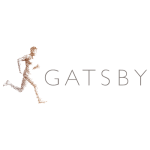Modern Approaches to Behavioural Analysis is a Cajal NeuroKit. The course will combine online lectures on fundamentals and advanced neuroscience topics with guided data analysis and exercises.
Course overview
The goal of neuroscience is to understand how the nervous system controls behaviour, not only in the simplified environments of the lab, but also in the natural environments for which nervous systems evolved.
In pursuing this goal, neuroscience research is supported by an ever-larger toolbox, ranging from optogenetics to connectomics. However, often these tools are coupled with reductionist approaches for linking nervous systems and behaviour. This course will introduce advanced techniques for measuring and analysing behaviour, as well as three fundamental principles as necessary to understanding biological behaviour: (1) morphology and environment; (2) action-perception closed loops and purpose; and (3) individuality and historical contingencies [1].
[1] Gomez-Marin, A., & Ghazanfar, A. A. (2019). The life of behavior. Neuron, 104(1), 25-36
What will you learn?
This course will emphasize the philosophical and observational skills required to understand behaviour, while also providing training in motion capture technologies and computer vision methods that can assist in the collection and analysis of video recorded behaviour datasets.
Focusing on the tool DeepLabCut, students will analyse either their own original video dataset or datasets of general interest and have the opportunity to practice tracking, pose estimation, action segmentation, kinematic analysis and modeling of behaviour.
By the end of the course, you will:
- be familiar with modern and historical frameworks for studying the behaviour of living biological systems
- practice methods for carefully and precisely observing and defining behaviours
- understand the limits and capabilities of computer vision
- develop an intuition for how to build experimental setups that can take advantage of tools such as DeepLabCut
Furthermore, this course shares and promotes open source software, and we encourage students to try new ideas, share insights, and connect with the open-source community.
Pre-course for TAs
We are running a pre-course in early November at the EPFL in Geneva (Switzerland) and online, on November 7 – 11, 2022, to train Teaching Assistants. If you would like to help us teach this course locally or online, you can email us at info@cajal-training.org
Faculty
Keynote speakers
Nicola Clayton (Cambridge University, UK)
Ole Kiehn (Copenhagen University, Denmark)
Guest lecturers
Johanna T Schultz (USC, Australia)
Caleb Weinberg (Harvard Medical School, USA)
Nacho Sanguinetti (Harvard University, USA)
Local training hubs:
1. Okinawa (JP):
Aleksandra Gavrilova (OIST, JP)
Saffira Tjon (Okinawa Institute)
2. Colorado Springs (USA):
Jonas Haakansson (Colorado University)
3. Warsaw (PL):
Konrad Danielewski (Nencki Institute, PL)
4. London (UK):
5. Buenos Aires (AR):
Sabrina Benas (AR)
Facundo Emina (Leloir Institute Foundation, AR)
6. Nairobi (KE):
Nirel Kadzo (Strathmore University, KE)
7. Munich (DE):
Programme
Day 1 – What is animal behaviour?
Historical and current theoretical frameworks for the study of behaviour in living biological systems
Practical exercises for training skills in observing and defining behaviours
Day 2 – Tools for modern-day ethology
Fundamentals of video recording, computer vision, and deep learning
Introduction to DeepLabCut
Creating a tailored DeepLabCut model for your data or data shared by us.
Day 3 – Training computers to see as we see
Multi-animal tracking
Live tracking
Evaluating, utilizing and optimizing your DeepLabCut model from day 2
Day 4 – Analysis by eye and by computer
Movement kinematics in living biological systems
Action segmentation – when does a behaviour start and end?
Analyse original video dataset of behaviour
Day 5 – Working on your data and discussion
-
Advanced DLC topics and potential pitfalls
-
Keep analyzing data and student presentations
The course will be held from 13:00 to 17:00 GMT.
Registration
Registration fee: 200€ per person (includes pre-recorded and live lectures before and during the course, tutoring, and course certificate).
Applications closed on 24 October 2022, 23:59 CEST
To receive more information about this NeuroKit course, email info@cajal-training.org








